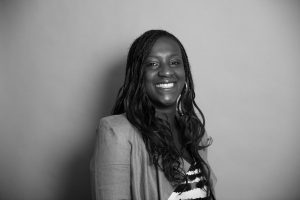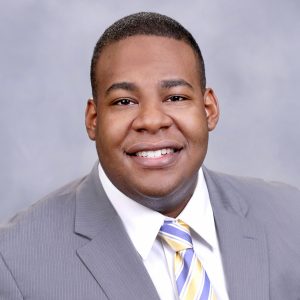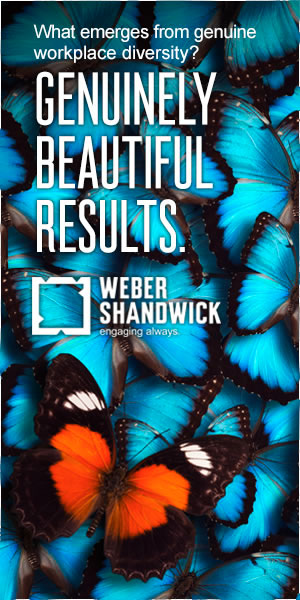Both dubbed the cultural capital of the world, New York and London are the mutual epicenter of the global public relations industry. Having spent considerable time working in both cities, it seems the issue of diversity within the industry is finally being given attention. Largely due to the business case for diverse talent; but also due to it becoming a prerequisite for new business in some cases.
In the U.S., 21% of PR employees are from multicultural backgrounds, according to the Bureau of Labour Statistics, compared to a startling 9% in the UK, a number that has remained unchanged since 2011 (based on figures from the PRCA). My peers regularly vent their frustration at the poor representation of people of color in senior management.
In my experience, multicultural PR talent is far more visible in New York than in London, as I would regularly attend events in the UK capital and be the only person of color. The Public Relations Society of America (PRSA) in the U.S.; the PRCA and The Taylor Bennett Foundation (TBF) in the the UK have all shown their commitment to addressing the issue. TBF for example, is specifically focused on providing training and mentoring programs to encourage multicultural graduates to pursue a career in communications. In addition, the PR Council has tapped into third parties focused on educating and strengthening workforce diversity efforts such as the Black Creatives and the Hispanic Public Relations Society in the U.S.
“Diversity and inclusion is, and will continue to be, an area that the PR Council supports on behalf of the communications industry,” said Sara Ghazaii, Vice President, Communications at the PR Council. This must be an industry-wide effort for us to get where we need to be.”
Effective Approaches to Improving Diversity
DIVERGE will give much needed visibility to the diverse faces that make up the global communications industry and serve as an online destination for the new direction of advertising, marketing, public relations, and media with a focus on diversity.
More action is being taken to showcase multicultural talent and address the disparity. I’m hopeful that in 2017, we’ll see even more tangible results of industry initiatives. But there is no one size fits all solution.
Diversity programs, often lauded as the silver bullet were labeled ineffective in a recent Why Diversity Programs Fail, Harvard Business Review article; with outdated 1960s approaches cited as the reason. It’s much more effective to engage managers in solving the problem, increase their on-the-job contact with multicultural staff and promote social accountability the article notes.
Similarly, African American PR executives interviewed by PR Week said that while agencies have improved their recruitment and hiring of black PR talent at entry levels, they must do a better job of advancing their careers and keeping them engaged. Employees who feel their good work isn’t as equally rewarded as their peers will eventually leave. Companies must do all they can to ensure that similar to all employees, their multicultural talent are supported, engaged and given opportunities to develop.
It will take time to increase multicultural talent in the PR and communications industry more broadly, particularly at a senior level. But it’s pleasing to see the increased commitment and momentum taking place across the profession to better reflect the diverse society we live in. I’m hopeful that in 2017, we’ll see even more progress made.
Case Studies:

© Jason Lock Photography
Name: Claire Quansah
Job Title: Senior Account Director, Global PR agency
Location: Manchester, UK
Have you encountered any barriers during your career?
There are always barriers when trying to establish a career. I started out in B2B technology but now focus more on consumer and corporate PR. It was a challenge to transition to a new specialism. I’ve worked with a mix of clients in different industries, some which were white-male dominated, so I’ve had to work extra hard to prove my worth, through extra study or speaking to more experienced professionals.
I’ve not had many challenges when it comes to employment. I’ve spent most of my career at two very large global PR agencies in London and Manchester, who both had a talent-first ethos. I was able to progress fairly quickly. From my experience global organizations are more likely to embrace diversity and see the benefits of a diverse workforce, whether that’s in terms of people’s backgrounds or experiences.
Do you feel the diversity issue in the communications industry is being sufficiently addressed?
The fact that diversity is being addressed can only be a good thing, but there is still a lot of work to be done. When I started my career 10 years ago, PR had a reputation for being white and middle class. I’ve certainly seen some changes in parts of the industry. I hope this is just the start. There are more mentoring schemes and internship programs, with the aim of improving diversity, but these tend to be in London. We need more programs in other parts of the country.
The communications industry is changing and now more than ever, we need to have a diverse pool of talent to embrace and address these changes. I firmly believe organizations that recognize this will be the ones that are most successful. In an ideal world, we wouldn’t need specific programs for individual groups because there would be an open playing field. Unfortunately, we aren’t there yet.
What needs to improve?
We need to make it easier to gain access to the industry, which is where the paid internship programs make a difference. We also need to ensure that mentoring and support continues further on in people’s careers. Currently the focus seems to be on the early years of a career in communications, but support drops off once people reach manager or director level. This is the case when talking about diversity in its broadest terms, be it ethnicity, gender, disability. Without providing continuous support and mentorship, the candidates invested in at an early stage, will drop out and opt for other careers. The people that have broken through the ‘glass ceiling’ should raise their profiles, not just for their own benefit but that of the industry, to give newcomers something to aspire to.
That said, we can’t solely rely on ‘the industry’. People shouldn’t be afraid to put their name out there, network, make contacts and build positive relationships. There’s nothing to say you can’t make it in this industry and inspire others along the way.

Name: James Walker
Job Title: Vice President, Digital & Corporate, Global PR agency
Location: New York, U.S.
Have you encountered any barriers during your career?
I have not experienced obvious barriers during my career in terms of diversity. I will say that it requires effort, especially early on in your career to build relationships. The lack of diversity tends to lead to a lack of common experiences, the thing that often is the basis for how you develop strong, positive relationships with co-workers both in and out of the office.
In addition, the natural tendency is to turn to senior professionals who look like you and may have had similar experiences to talk about how best to gain visibility within organizations and climb the career ladder. But when I started out, there were VERY few people to seek out. I had to overcome that thinking in order to get the mentoring I needed to grow, but this is not easy for many professionals.
Do you feel the diversity issue in the communications industry is being sufficiently addressed? I do not feel that diversity in the communications industry is being sufficiently addressed. Comparing today to the start of my career about 10 years ago, I have seen a major uptick in the discussion about diversity but much less action and communication about results.
What needs to improve?
Recruitment will always be an important part of the equation, but I think there is a lot of room for improvement when it comes to retention. The industry could make some true progress if agencies, companies, and non-profits could retain the solid, diverse talent they are able to recruit. In this respect, it is less about encouraging people within the organization to celebrate diversity and more about two other things: making diverse teams the norm and making your organization a place where people want to build long careers.
Marielle Legair is the founder of Legair Consults, a public relations and personal branding consultancy. She works with clients to raise their profile, create media buzz and increase audience engagement of their business. Marielle is also a contributor to The Huffington Post and Boss Babe, a network dedicated to millennial women entrepreneurs, where she writes a weekly column on PR trends and entrepreneurship. Visit Marielle’s website for more info: www.mariellelegair.com

